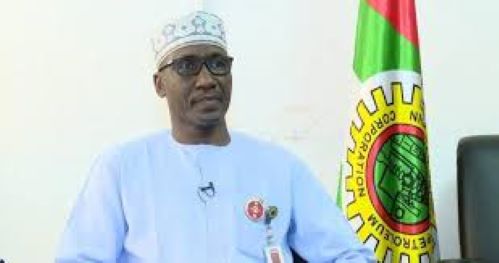By Jonathan Lois
A coalition of civil society organizations under the banner of the Situation Room on Transparency and Accountability has called for an urgent and comprehensive probe into the tenure of Mele Kyari, the recently dismissed Group Chief Executive Officer (GCEO) of the Nigerian National Petroleum Company Limited (NNPCL).
The group raised alarm over the alleged mismanagement of $1.5 billion earmarked for the rehabilitation of the Port Harcourt refineries, describing the development as a national emergency that reflects entrenched corruption within Nigeria’s oil and gas sector.
At a press conference held in Abuja, the coalition — comprising civil society actors, civic leaders, and self-described patriotic citizens — expressed strong support for President Bola Ahmed Tinubu’s recent reforms, including Kyari’s dismissal.
However, they emphasized that real reform must be rooted in accountability and transparency, urging the federal government to go further by launching a forensic investigation into the activities of the NNPCL over the past five years.
Reading from a statement, Convener of the coalition, Ambassador Michael Omoba, said Nigerians have been left outraged and betrayed following revelations that the $1.5 billion supposedly spent on revamping the Port Harcourt Refineries yielded no tangible result.
“This amount is equivalent to the annual budgets of several African nations, and yet it has been squandered with no functional refinery to show for it,” Omoba said.
He accused the former leadership of the NNPCL of operating the corporation like an “opaque cabal,” and of betraying public trust by engaging in reckless, ceremonial spending that has failed to revive Nigeria’s ailing downstream sector.
“The refinery has neither produced a single drop of refined product nor met any industrial standard expected of such an investment,” he added.
More damning, perhaps, was the coalition’s reference to the unresolved case involving the disappearance of over 89 million barrels of crude oil, allegedly transferred to non-state actors without accountability.
“This is not merely mismanagement — it is economic sabotage of the highest order,” said Omoba, demanding answers on who authorized the transactions, who benefitted, and why no arrests have been made.
He warned that continued silence over these financial atrocities would send a dangerous message to both the local population and the international community, undermining investor confidence and casting Nigeria as a country tolerant of economic malfeasance.
The coalition also spotlighted a murky partnership between the NNPCL and Matrix Oil, which allegedly contributed $400 million to the ongoing refinery rehabilitation project.
Omoba questioned the legal and procedural frameworks behind the deal, asking whether it conformed with Nigeria’s Public Procurement Act and what the country stands to gain — or lose — from such an arrangement.
Additionally, the group lamented the suspension of the Naira-for-Crude policy under Kyari’s leadership, describing the move as a missed opportunity to protect Nigeria’s economy from foreign exchange shocks.
According to them, the policy could have strengthened the Naira, stabilized local petroleum prices, and supported domestic industries. They urged the new GCEO, Engineer Bashir Bayo Ojulari, to reinstate the policy under tighter anti-corruption guidelines.
The press conference painted a grim picture of Kyari’s leadership, accusing him of enabling a “syndicate of economic hemorrhage” that sabotaged national development and deepened citizen poverty.
“This is a betrayal of the Nigerian dream,” the statement read. “Every dollar wasted is a blow to our struggling economy, and every unanswered question is an insult to our democracy.”
The coalition emphasized that their position was not born out of vengeance, but of patriotic duty to protect Nigeria’s economic sovereignty and ensure the nation’s oil wealth is managed in the interest of the people.
They called on President Tinubu to match his reformist rhetoric with action, stressing that “reform without accountability is merely cosmetic.”
The Situation Room listed five major demands: 1. A forensic audit of all NNPCL financial transactions over the past five years, 2. Public disclosure of all beneficiaries linked to the alleged diversion of 89 million barrels of crude oil, 3. A comprehensive breakdown of how the $1.5 billion was spent on the Port Harcourt refinery, 4. Investigation and prosecution of Mele Kyari, former board members, and other implicated NNPCL officials and 5. Legislative oversight hearings to ensure transparency in the operations of the new NNPCL leadership.
Ambassador Omoba closed the press conference with a rallying call to citizens, the media, and civil society to sustain pressure on the authorities.
“The era of impunity is over,” he said. “We must not allow another generation of corrupt actors to feast on our collective wealth without resistance.”
The coalition argued that the scandal goes beyond the failings of one individual. Instead, it is symptomatic of systemic rot that must be addressed if Nigeria is to fulfill its potential as Africa’s largest economy.
In conclusion, the group appealed to the Economic and Financial Crimes Commission (EFCC), the National Assembly, and the Presidency to act swiftly and decisively.
“Let this be the last time in our national history that such flagrant impunity will be tolerated,” Omoba said. “Those responsible must face the full wrath of the law. Anything less would be a betrayal of the Nigerian people.”



